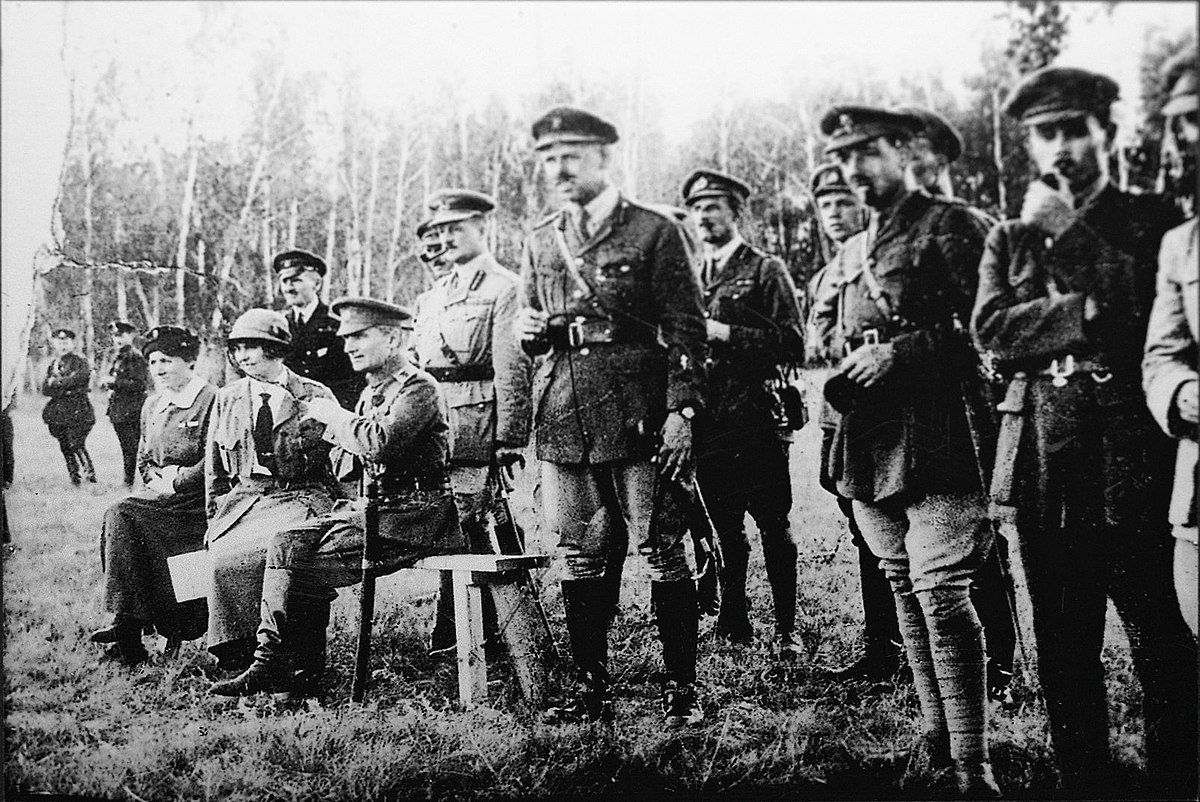
Anti-Bolshevik movement
RussiaWhile resistance to the Red Guards began on the very day after the Bolshevik uprising, the Treaty of Brest-Litovsk and the instinct of one-party rule became a catalyst for the formation of anti-Bolshevik groups both inside and outside Russia, pushing them into action against the new Soviet government.
A loose confederation of anti-Bolshevik forces aligned against the Communist government, including landowners, republicans, conservatives, middle-class citizens, reactionaries, pro-monarchists, liberals, army generals, non-Bolshevik socialists who still had grievances and democratic reformists voluntarily united only in their opposition to Bolshevik rule. Their military forces, bolstered by forced conscriptions and terror as well as foreign influence, under the leadership of General Nikolai Yudenich, Admiral Alexander Kolchak and General Anton Denikin, became known as the White movement (sometimes referred to as the "White Army") and controlled significant parts of the former Russian Empire for most of the war.
A Ukrainian nationalist movement was active in Ukraine during the war. More significant was the emergence of an anarchist political and military movement known as the Makhnovshchina, led by Nestor Makhno. The Revolutionary Insurgent Army of Ukraine, which counted numerous Jews and Ukrainian peasants in its ranks, played a key part in halting Denikin's White Army offensive towards Moscow during 1919, later ejecting White forces from Crimea.
The remoteness of the Volga Region, the Ural Region, Siberia and the Far East was favorable for the anti-Bolshevik forces, and the Whites set up a number of organizations in the cities of those regions. Some of the military forces were set up on the basis of clandestine officers organizations in the cities.
The Czechoslovak Legions had been part of the Russian Army and numbered around 30,000 troops by October 1917. They had an agreement with the new Bolshevik government to be evacuated from the Eastern Front via the port of Vladivostok to France. The transport from the Eastern Front to Vladivostok slowed down in the chaos, and the troops became dispersed all along the Trans-Siberian Railway. Under pressure from the Central Powers, Trotsky ordered the disarming and arrest of the legionaries, which created tensions with the Bolsheviks.
The Western Allies armed and supported opponents of the Bolsheviks. They were worried about a possible Russo-German alliance, the prospect of the Bolsheviks making good on their threats to default on Imperial Russia's massive foreign loans and the possibility that Communist revolutionary ideas would spread (a concern shared by many Central Powers). Hence, many of the countries expressed their support for the Whites, including the provision of troops and supplies. Winston Churchill declared that Bolshevism must be "strangled in its cradle". The British and French had supported Russia during World War I on a massive scale with war materials.
